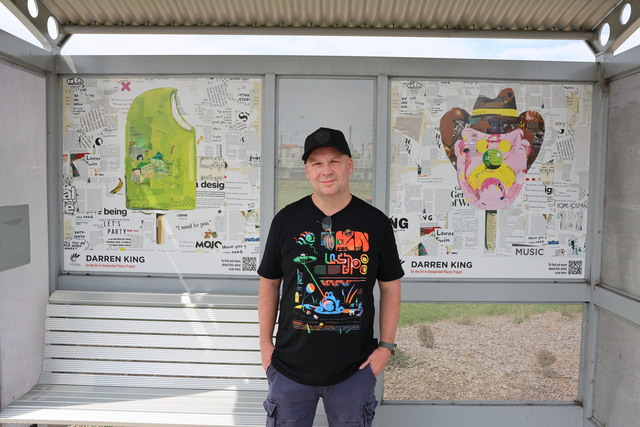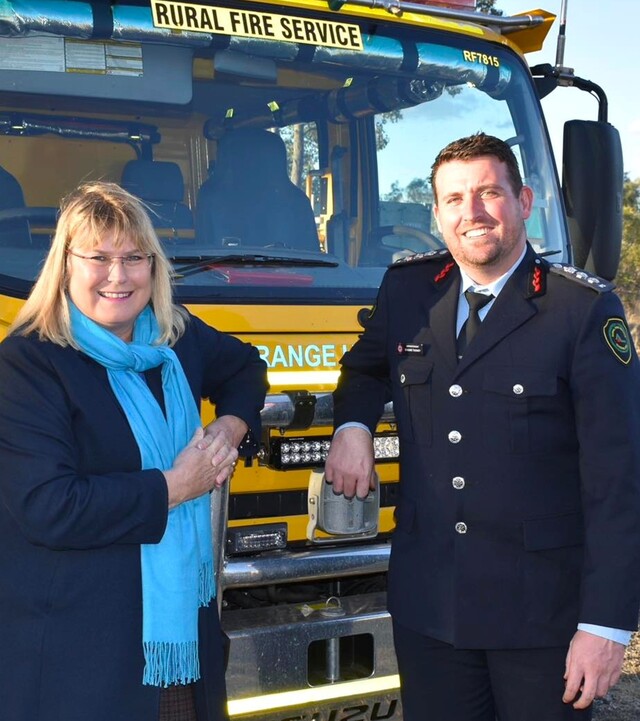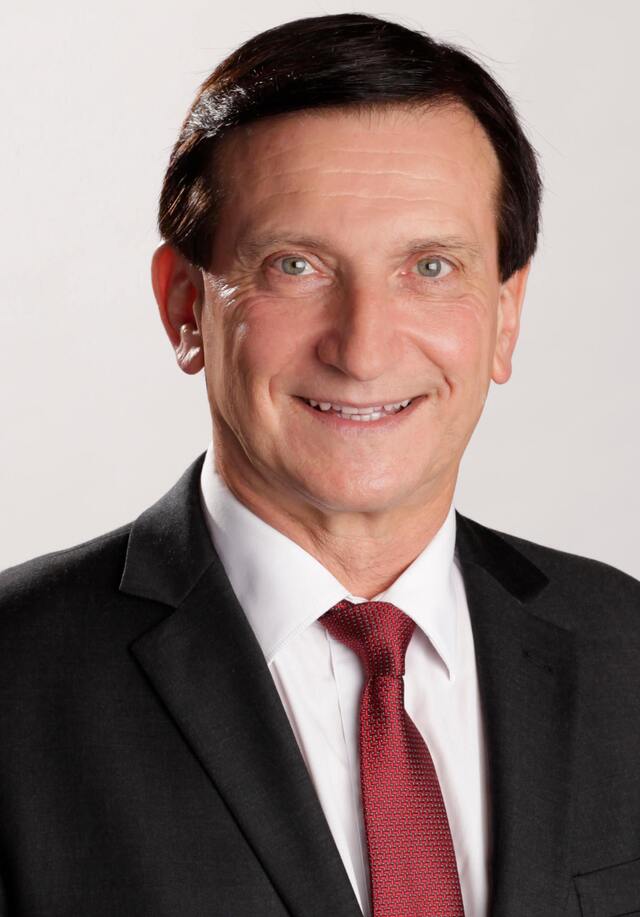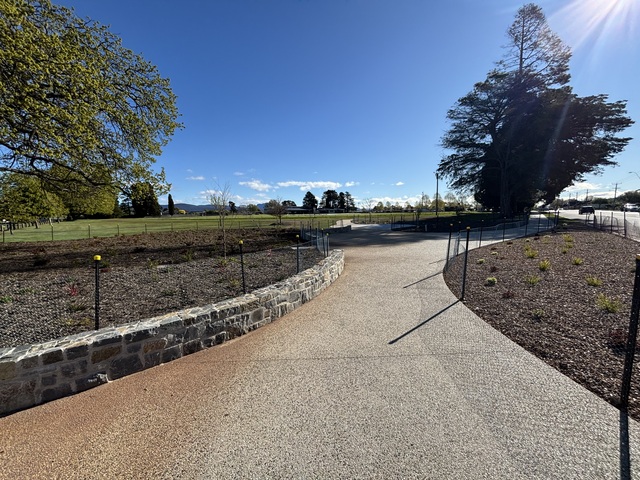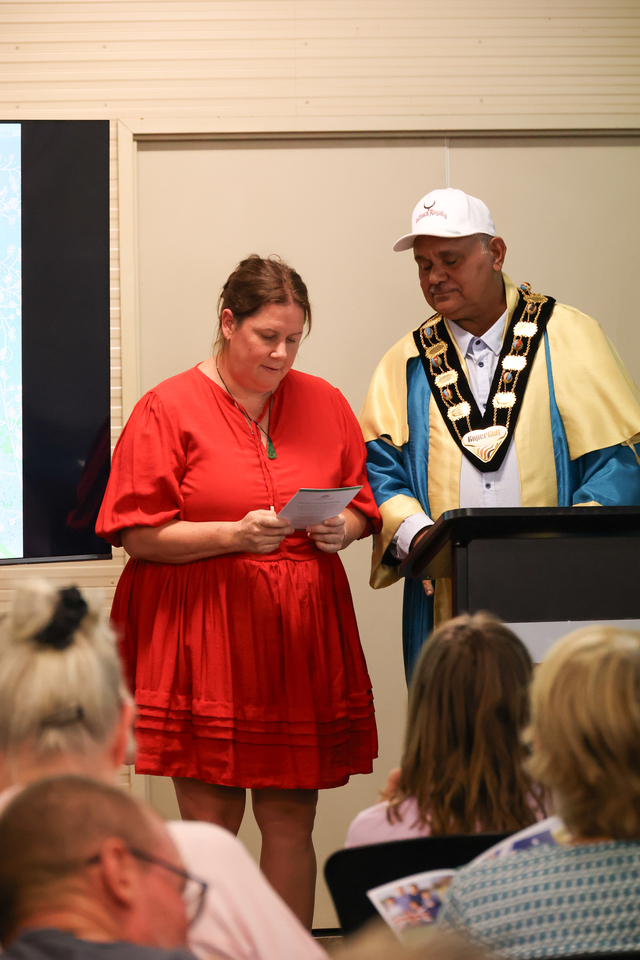At the Local Government Managers Australia Congress in Perth in May,
Local Government Focus invited delegates to nominate individuals or
teams from their councils who have made a significant contribution to
their council and local community.
Elizabeth Death, Director Community Services, MacDonnell Shire Council, Northern Territory
At MacDonnell Shire Council we provide community services on a significant scale to 12 remote and extremely remote Indigenous communities across an expanse that is equivalent to the size of Victoria.
Working in this environment has many inherent challenges, giving me the opportunity to utilise and stretch my expertise in providing community services, which has been the focus of my over 30-year career.
Now, as Director Community Services at the Shire, I work across children’s services, youth services, aged care and community safety.
One of my key interests is in the education, health and wellbeing of all our community members, in particular the young children.
The critical formative years, between birth and the age of five, establish life long learning patterns, behavior and attitudes. Each dollar that is wisely invested in a child in early childhood saves thousands of dollars in punitive or remedial learning later in life. These principles of early childhood development and positive guidance translate across all community services, geographical boundaries and levels of management.
One of the projects I am particularly proud of is the MacDonnell Shire Youth Suicide Prevention Project, which involved Council’s Youth Development team working with other youth agencies, such as the Central Australian Youth Link Up Service (CAYLUS), musicians, multimedia experts and community elders on a three-month long suicide prevention project.
Those involved in the project worked with youth living in remote communities, guiding them in writing, documenting and recording songs, stories and messages about change, support and the impact of suicide upon their friends, family and community.
The CD and DVD that resulted from the project — The Right Track: Stay Strong, Live Long — has been widely distributed and appreciated. The accessibility of the content, which is in Indigenous language and reflects communities’ contemporary experiences, has resulted in the CD being played right throughout the Shire.
Another project of note was the production of a picture board book for children in Pintbi/Luritja language.
The Children’s Services team and the Batchelor Institute for Indigenous Tertiary Education worked with mothers and women from the Kintore community to write and illustrate a children’s story about a well-known community pig!
This project has had many positive outcomes, including literacy skills for children and families, combined with the promotion of the joy of reading.
While I am proud of many of the achievements of the teams I work with, two in particular stand out.
First, building the relationships and synergies between the community services teams across each community has been rewarding. For example, Community Safety night patrollers now support Council’s Youth Development workers in reaching out to young people, encouraging them into active sport and school attendance, amongst other things.
A second positive step has been increased Indigenous employment in each of our community services programs. We can now boast 100 percent Indigenous Community Safety staff, more than 90 percent Indigenous Aged Care staff and more than 80 percent Indigenous staff across all Shire programs.
We hope, in the long term, to make ourselves redundant; however, in the interim we are committed to two-way learning and working side-by-side with local staff whilst delivering services within a culturally safe environment.
In the future, I’d like to see MacDonnell Shire Council place a stronger and explicit focus on community development, in terms of both qualifications and practice, across all areas of service delivery.
I’d also like to see a continuous improvement in our approach to community engagement. We need to always be looking for the most appropriate way to engage meaningfully with communities, recognising that each child, family and community requires a unique and considered approach.
There are simply no blanket approaches to engagement in remote and very remote Indigenous communities.
The Communications and Marketing Team, City of Darwin, Northern Territory
Each year on the 19th February, the City of Darwin commemorates the anniversary of the Bombing of Darwin with a formal community service at the Darwin Cenotaph. More than 240 servicemen, women and civilians lost their lives on the 19th February 1942, in the first and most devastating bombing raid on Darwin during World War Two.
As well as the commemorative service, the City of Darwin hosts a Veterans Program, where World War Two veterans stationed in Darwin during the war are invited to participate in Anniversary events. This includes a special dinner hosted by the Lord Mayor of Darwin as well as day trips to local places of historic interest.
February 2012 marked the 70th Anniversary of the Bombing of Darwin. The City of Darwin recognised the significance of the event and a special advisory committee — The Bombing of Darwin and Military History Advisory Committee — was set up to advise Council on steps to be taken in planning for the milestone anniversary. Alderman Robyn Lesley was the chairman of the committee.
Planning started around 18 months prior to the event, and three main goals were outlined for the 70th Anniversary:
- enhance the national profile of the Bombing of Darwin with the aim of it being recognised as a major historical event of national significance
- ensure the next generation of Australians have the opportunity to learn more about the events in Northern Australia during World War Two
- acknowledge and commemorate those who lost their lives and those who survived the bombing attacks on Darwin.
During 2012, the Communications & Marketing team were active in establishing national programs that were successful in achieving the first two objectives, relating to gaining national recognition for the bombing of Darwin.
Firstly, the Governor General of the Commonwealth proclaimed that the 19th of February each year would be known as Bombing of Darwin Day, a national day of observance. This proclamation was gazetted on the 14th of December 2011.
Secondly, the bombing of Darwin is now part of the national curriculum, thus ensuring that the events of 1942 will be passed on to future generations through the public education system.
The third goal was achieved through a series of actions undertaken by the 70th Anniversary team.
The annual bombing of Darwin commemorative service is a well-established part of the Darwin community’s annual calendar of events, with attendance of between two and three thousand people each year.
It was important that the community had the opportunity to commemorate the 70th Anniversary in a way that was meaningful to them, as well as being inclusive and accessible to the community at large. At the launch of the project in June 2011, the Lord Mayor of Darwin called on the community to provide input on how they wished to commemorate the milestone anniversary.
In response, the team coordinated a range of community events and activities. They also collaborated with a number of government, not-for-profit and private businesses to coordinate additional activities and events.
Executive Manager of the City of Darwin, Mark Blackburn, who nominated the 70th Anniversary team said he was impressed throughout the planning and implementation of the series of events.
“Each member of the team brought their own talents to the table, and together they were able to deliver a series of community events, as well as a truly memorable event at the Darwin Cenotaph, which was attended by many national dignitaries and broadcast live on national TV.
“It was clear that the World War Two veterans at the centre of the event had a truly memorable time in Darwin, and this was largely due to the extra effort each member of the team made.”
Attendance at the event at the Cenotaph was in excess of 8000 people, and most events ran at full capacity.
The third objective for the 70th Anniversary was met through the Veterans Program; more than 100 veterans plus their carers or family members attended the many community events as well as the commemorative service at the Darwin Cenotaph.
The Veterans Program was universally enjoyed and the team felt it was an honour to be part of the program, as they were both humbled and proud to be able to spend time getting to know the veterans who defended Darwin seventy years ago.


